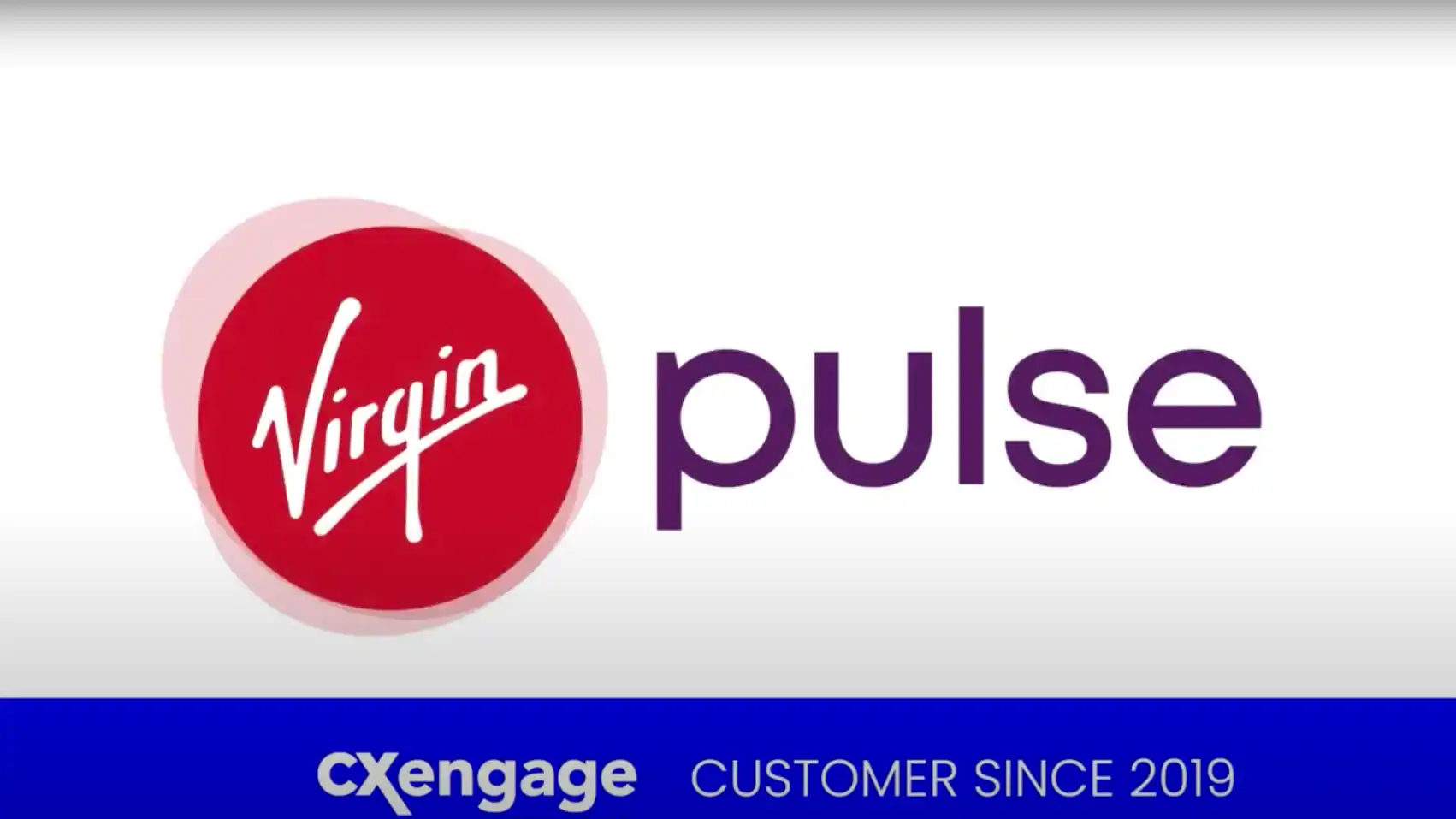Today we’ll be rounding out our discussion on choosing the right CCaaS provider — and with that, concluding this particular “Customer Experience in the Cloud” mini-series of live streams and blog posts.
In last week’s post, we explored how to assess CCaaS providers’ core proficiency areas while staying laser-focused on your own desired outcomes. This week, we’ll be homing in on how to maintain a consistent (and reasonably objective) vetting approach by using a standardized list of questions to ask each prospective vendor.

These 14 questions will not only help ensure that you check off all those boxes in terms of features and requirements; they’ll also make it much easier to ensure you’re comparing apples to apples, by contrasting how different providers respond to the exact same question. So without further ado…
14 questions any CCaaS vendor needs to answer
1. What makes your solution unique in terms of features and functionality?
Start with the obvious: What features does the provider offer? What differentiates them in the market? This is where you bring everything we talked about last week into play — making sure they have the basics (like voice quality) covered as well as the specific automation, AI, integrations and workforce engagement management (WEM) advanced features you’ve identified as most important for your particular CCaaS implementation goals.
2. Can you provide customer references to back up your claims?
Any vendor you’re seriously considering should be able to provide you with at least three to five solid customer references that demonstrate the company’s success helping organizations like yours meet specific business needs with their solution.
Speaking to your fellow CX practitioners is a golden opportunity to cut through vendor hype and marketing fluff. Ask them: How was the project management experience? How long did it take you to get up and running, and to get employees up to speed? Were there IT problems? Are the features delivering everything they promised on the back of the box?
Smaller or newer vendors may have a limited number of references, but that’s okay — so long as the companies you do talk to are able to speak forthrightly, and are similar enough to yours in terms of size and requirements.
3. Where are your service nodes geographically located?
Acceptable latency, network resilience and always-on availability are all tablestakes for any successful CCaaS implementation. The geographic location of the vendor’s service nodes will impact all of the above, so make sure you understand where they are.
4. Where is your platform hosted?
You may not need to understand all the technical details yourself, but you should be broadly aware that a CCaaS vendor’s infrastructure strategy will determine a lot about their solution’s availability, scalability, security standards and more. So ask whether their solution is hosted on-prem, with a public cloud provider or via a hybrid setup. If they are reliant on a particular public cloud provider, which one? What kind of relationships and expertise do they have around that provider?
5. How is your architecture deployed?
Is the solution cloud-native? Is it truly multi-tenant?
6. Is your architecture designed for high availability?
What’s the provider’s disaster recovery (DR) strategy? Do they have the appropriate levels of redundancy built into their architecture? If they’re deployed in a public cloud like Microsoft Azure or Amazon Web Services, are they deployed to multiple regions and using multiple availability zones?
7. What are your service level agreements (SLAs)?
Can the vendor provide clear, specific SLAs, and do those SLAs meet your minimum availability requirements? Problems happen, but when they do, what’s the vendor’s plan to resolve them? How fast can they get you back online, and what kind of credits can they offer you?
8. What levels of support do you offer and at what price?
What kind of options or tiers does the vendor offer in terms of support, and how customizable are the various service levels? Do they take proper advantage of cloud-based infrastructure models to provide more flexible options and cost-effective service utilization? Where is their support staff located? How will they communicate with your team? And based on your own customer support expertise, is their CX capacity and strategy sufficient to meet your needs?
9. Who is your primary customer base?
What kind of experience does the vendor have supporting organizations of your size, in your industry and with similar requirements to yours? Do they serve a wide spectrum of customers, or are they more focused on a particular vertical or geography?
10. How many agents can you support and how fast?
Ask each vendor about the largest customers they serve, and whether they can provide examples where they had to scale up to support large shifts in demand. Think of any seasonal factors you may have to deal with in your own business, or specific scenarios in which you’ve had to suddenly ramp up 500 agents out in the Philippines or Colombia or Wisconsin or anywhere else, then ask how they would be able to handle that kind of situation.
11. Can my organization do a free trial run of your software?
The ability to “try before you buy” is a major benefit of CCaaS (or any cloud solution, really). Unlike with legacy on-prem vendors, spinning up a trial is usually a snap — say, by moving 100 agents at a single contact center over to the new solution while continuing with your existing system in parallel — and presents an invaluable opportunity to demonstrate proof of value, identify potential hiccups in advance and get a headstart on the integration process.
12. How can you help us meet our data security and compliance obligations?
Make sure you have a firm understanding of how the vendor, both from a technology and support perspective, can help you continue meeting your data security and compliance requirements as you move to a cloud-based, multi-tenant solution.
13. What third-party systems, apps and tooling does your solution integrate with?
As we discussed in-depth last week, it’s important to identify which integrations you rely on the most, and to understand how easy and costly said integrations will be with the new solution. Does the vendor offer seamless, out-of-the-box integrations with mission-critical systems like CRM or help desk software? What if you have a highly customized Zendesk implementation, for example, or an important in-house application that needs to be integrated?
14. How do you use AI to offer insights and value?
Many vendors these days are trying to build AI and machine learning (ML) into their solutions, as well as integrate with leading best-of-breed services like AI-powered chatbots. As we’ve covered at-length previously in this series, these technologies can yield serious business value. But there’s also a whole lot of noise out there. What partnerships and tools does the vendor offer? What’s their AI and ML roadmap, and what differentiates their capabilities from everybody else? Can they present demos or specific use cases to show off those AI capabilities in action?
The 3 key takeaways
So there you have it: A thorough program of questions to make sure you cover all your bases while remaining consistent and reasonably objective in comparing CCaaS vendors. As you work through these 14 critical questions, make sure to pay special attention to those capabilities you’ve circled as having the most potential to help you meet your CX and cost efficiency business goals.
Here, once again, are our three key takeaways for vetting CCaaS solutions:
- Understand how CCaaS solutions impact the business — Keep in mind all those lessons we learned while building a CCaaS business case about assessing the business impact and ROI of any given solution’s architecture, performance and functionality.
- Know which CCaaS areas to evaluate — Know in advance the differences between need-to-haves and nice-to-haves.
- Use standardized questions and consistent scoring — Selecting a CCaaS provider and solution should feel more like buying a house or a new car than choosing between brands of laundry detergent. That doesn’t mean you should totally ignore your gut, but it does mean you should use consistent criteria and sets of questions like the ones we’ve outlined here.
For more insights, watch the full LinkedIn live stream episode, “The CCaaS Courtroom: You Be the Judge (Part 2 of 2).”
And for discussion of similar topics, tune in for the “Customer Experience in the Cloud” live stream series with Valur Svansson, every Wednesday at 9:30 a.m. CT on the Lifesize LinkedIn page. To watch past episodes on-demand, visit our YouTube channel.






